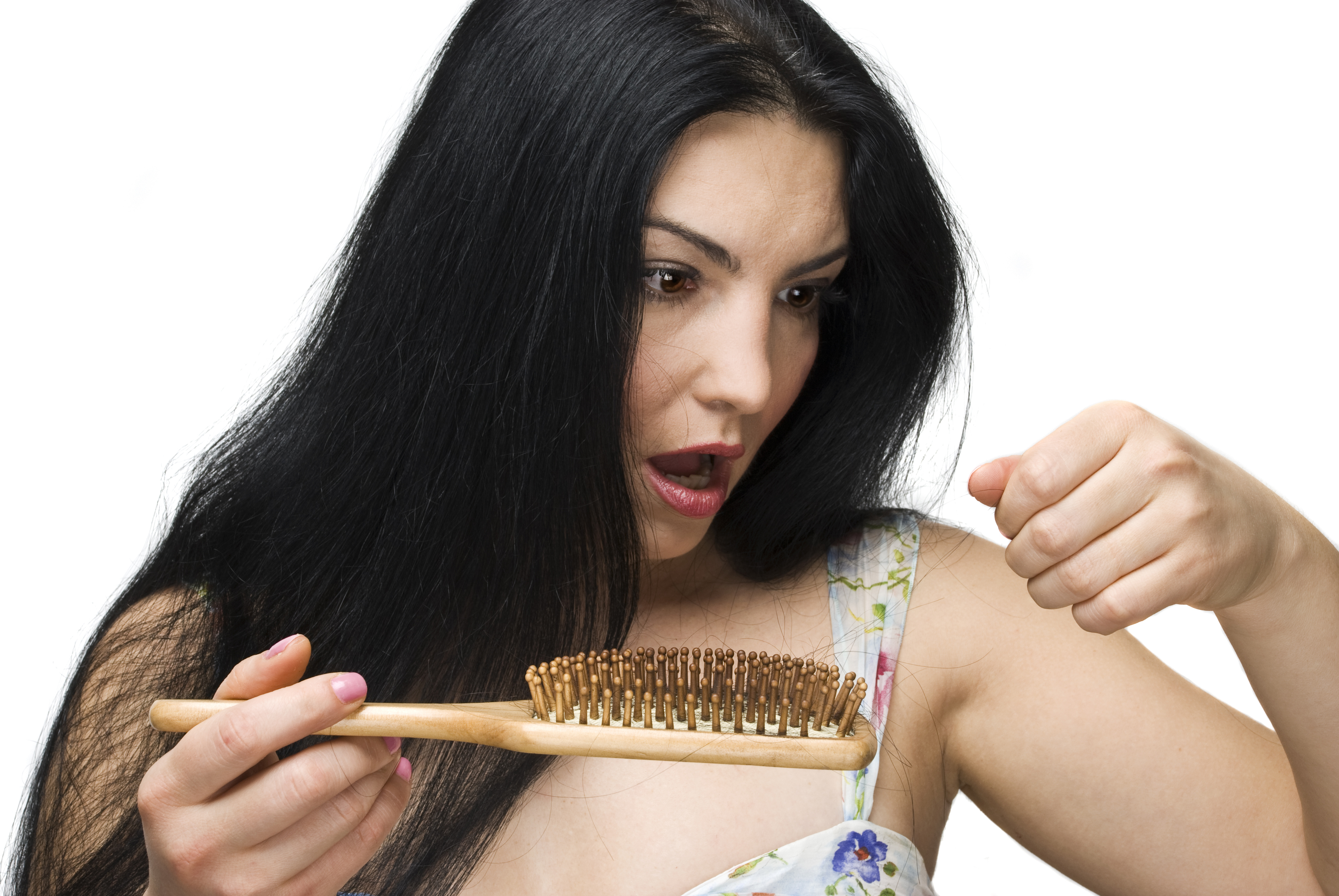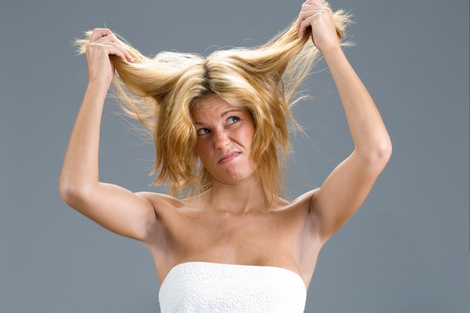While hair loss in women is different from that in men, there are some similarities in the way in which hormones affect hair growth. Problems arise when the follicle’s receptors become oversensitive to androgens and shut down — like locking a door. This can happen when one or more of the following three conditions prevail: a genetic proclivity, abnormally high levels of free testosterone, or a change in sensitivity to normal levels of circulating androgens.
Some women carry a genetic predisposition to male pattern baldness, but the process occurs in every woman to some degree as she ages and estrogen levels fall. Decreasing estrogen levels may allow the body to convert more available testosterone without opposition. The good news is that some cases of AGA resolve or limit themselves once internal balance has been restored.
Some factors that cause hair loss:
1. Stress is a major factor that helps the steady drop in the hair, by the weakening of it.
2. Surgical intervention produce what is known as telogen effluvium, which occurs after the 3 0r 5 months of this and can cause a large decrease in the quantity and quality of hair.
3. The woman during pregnancy is likely to lose a lot of hair because your body sends cells to body parts that demand more, and also will be vulnerable after childbirth.
4. A poor diet will be between contra a considerable decrease in the amount of the individual hair.
5. The extension of infectious disease can cause hair loss, due to the weakening of the organism and the drugs taken to combat them.
6. Consume disproportionately contributes to the body nutritional supplements insufficient amounts of certain amino acids, which consequently weakens the hair cells.
7. The sudden hair loss may be a clear sign of an abnormality of thyroid gland function.
8. Excessive use of hair dyes and poor care that can severely damage the hair and the fall of this.
9. The strict diets or eating disorders as a symptom bring alopecia insurance can be complicated sometimes dramatically.
10. Dandruff, seborrhea and seborrheic dermatitis are among the conditions that may be causing increased hair loss.
Be sure to ignore any of these symptoms and under all circumstances consult a specialist.
Some women carry a genetic predisposition to male pattern baldness, but the process occurs in every woman to some degree as she ages and estrogen levels fall. Decreasing estrogen levels may allow the body to convert more available testosterone without opposition. The good news is that some cases of AGA resolve or limit themselves once internal balance has been restored.
Some factors that cause hair loss:
1. Stress is a major factor that helps the steady drop in the hair, by the weakening of it.
2. Surgical intervention produce what is known as telogen effluvium, which occurs after the 3 0r 5 months of this and can cause a large decrease in the quantity and quality of hair.
3. The woman during pregnancy is likely to lose a lot of hair because your body sends cells to body parts that demand more, and also will be vulnerable after childbirth.
4. A poor diet will be between contra a considerable decrease in the amount of the individual hair.
5. The extension of infectious disease can cause hair loss, due to the weakening of the organism and the drugs taken to combat them.
6. Consume disproportionately contributes to the body nutritional supplements insufficient amounts of certain amino acids, which consequently weakens the hair cells.
7. The sudden hair loss may be a clear sign of an abnormality of thyroid gland function.
8. Excessive use of hair dyes and poor care that can severely damage the hair and the fall of this.
9. The strict diets or eating disorders as a symptom bring alopecia insurance can be complicated sometimes dramatically.
10. Dandruff, seborrhea and seborrheic dermatitis are among the conditions that may be causing increased hair loss.
Be sure to ignore any of these symptoms and under all circumstances consult a specialist.










0 comments:
Post a Comment